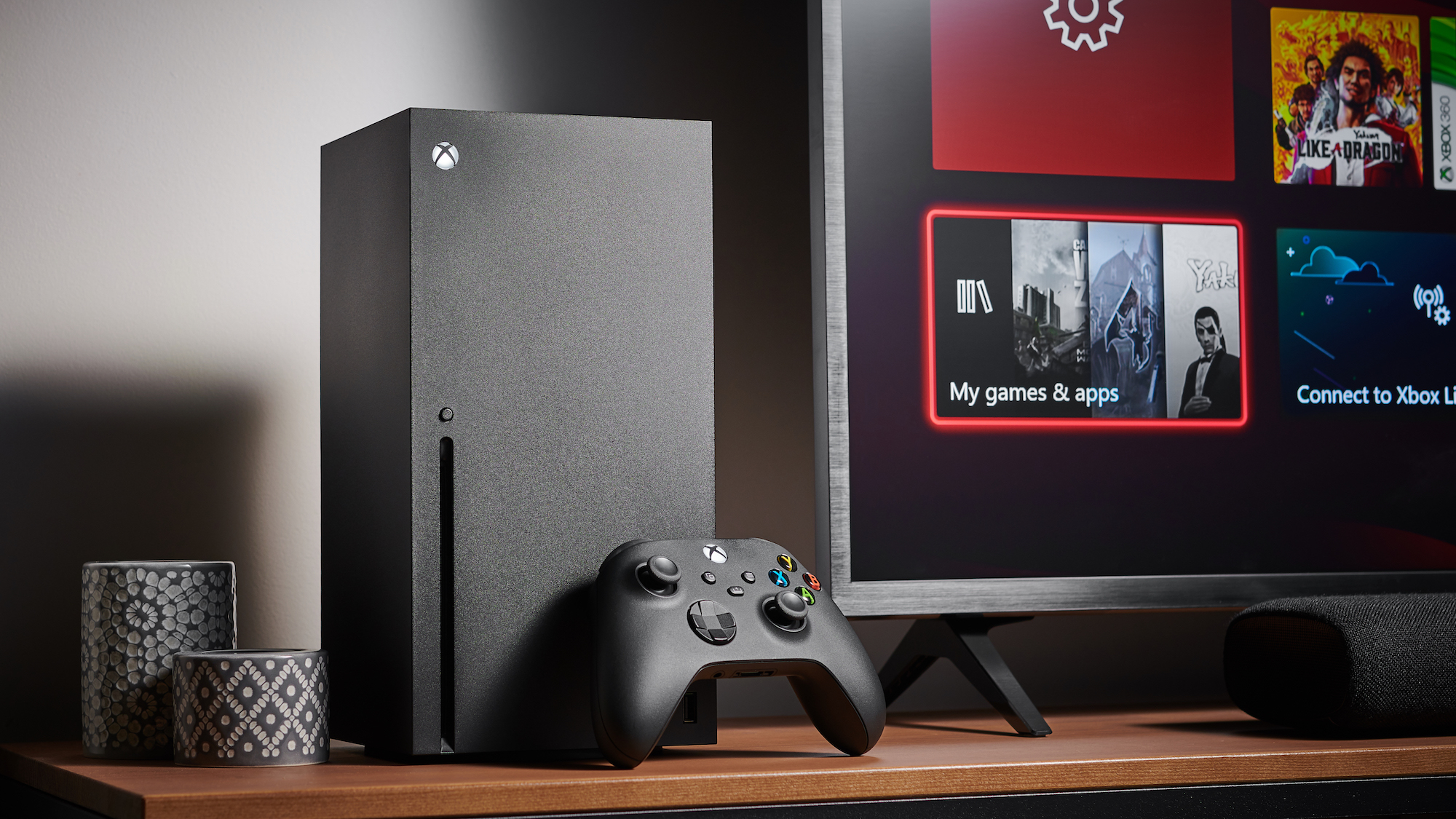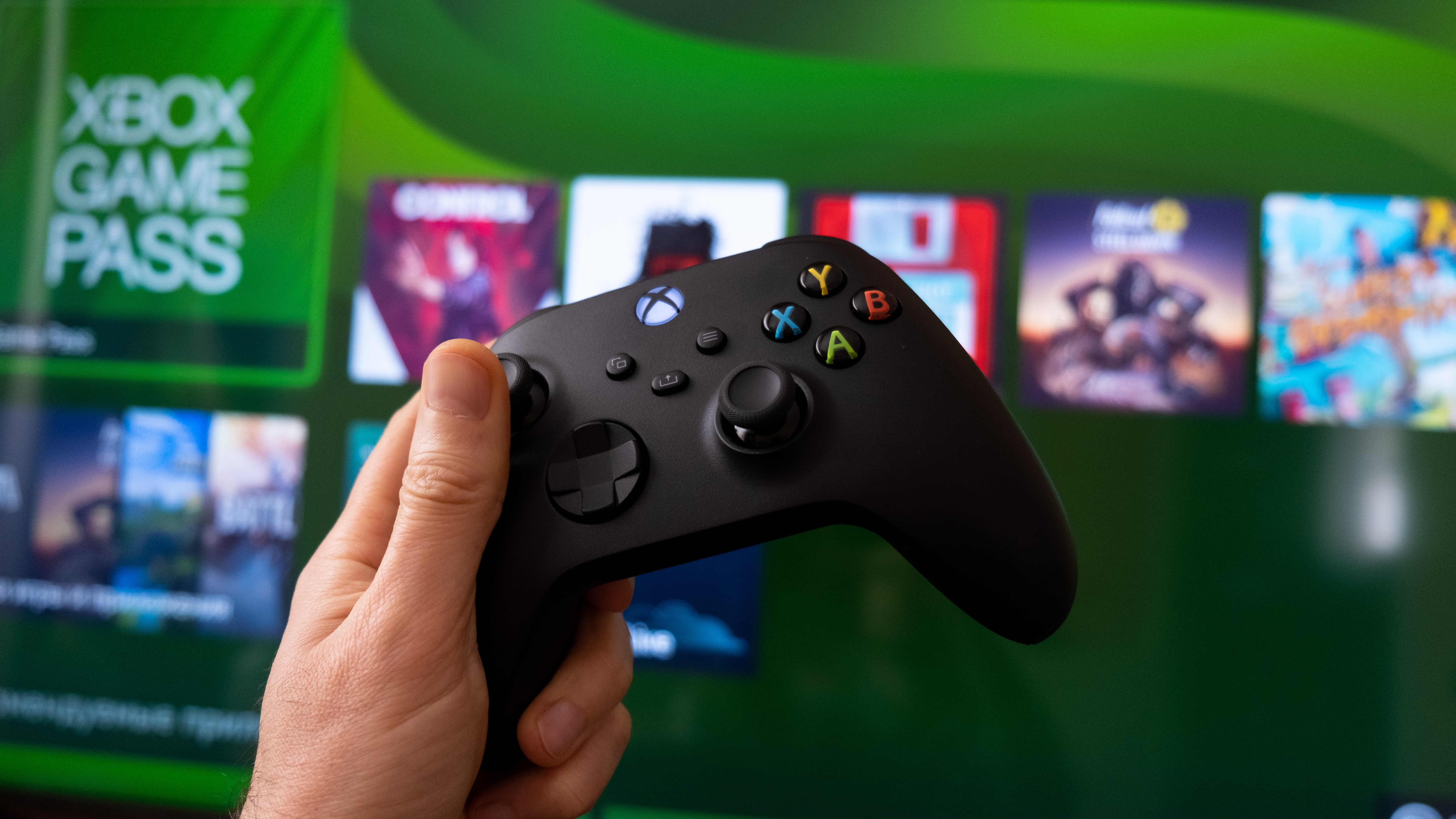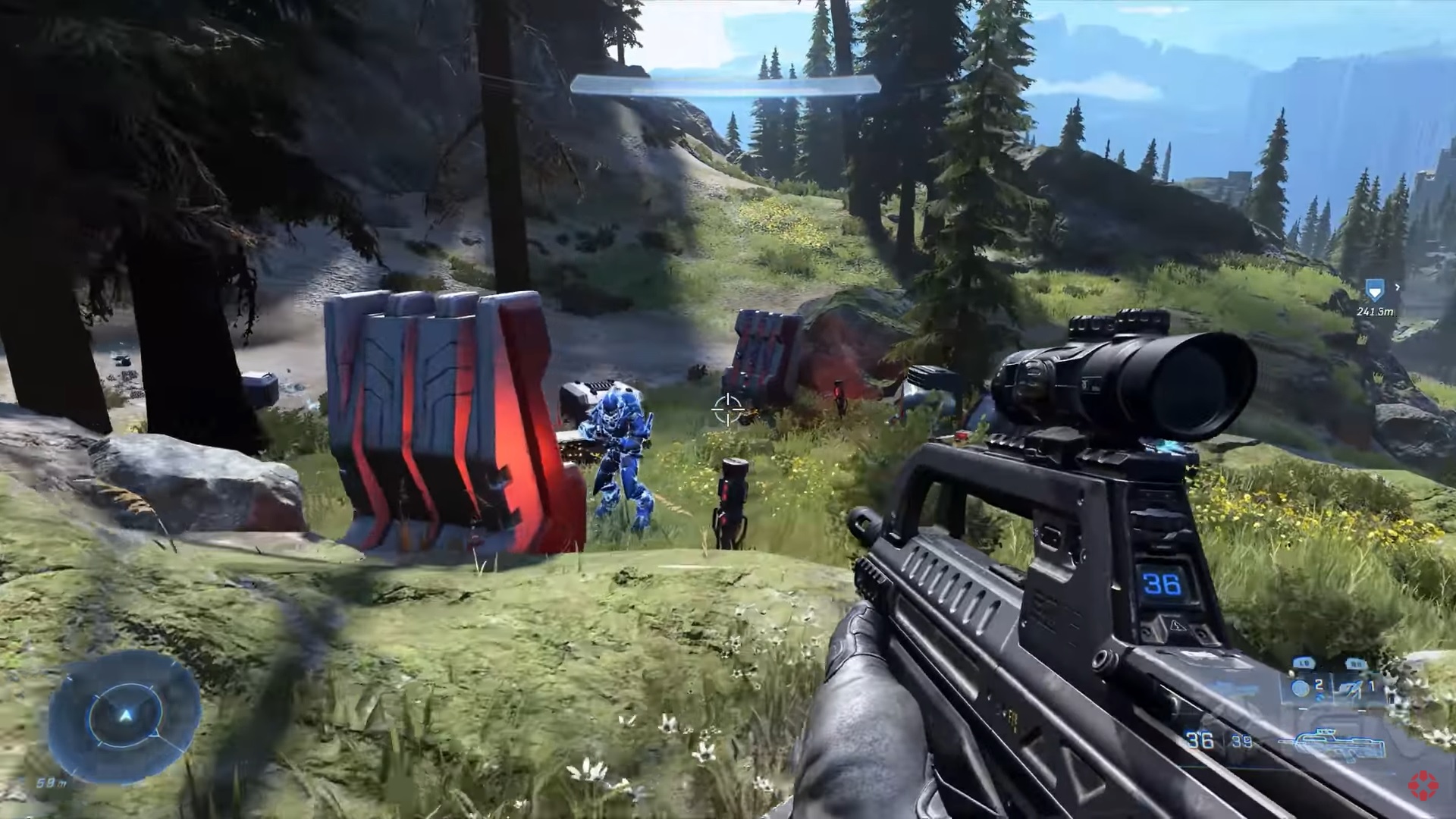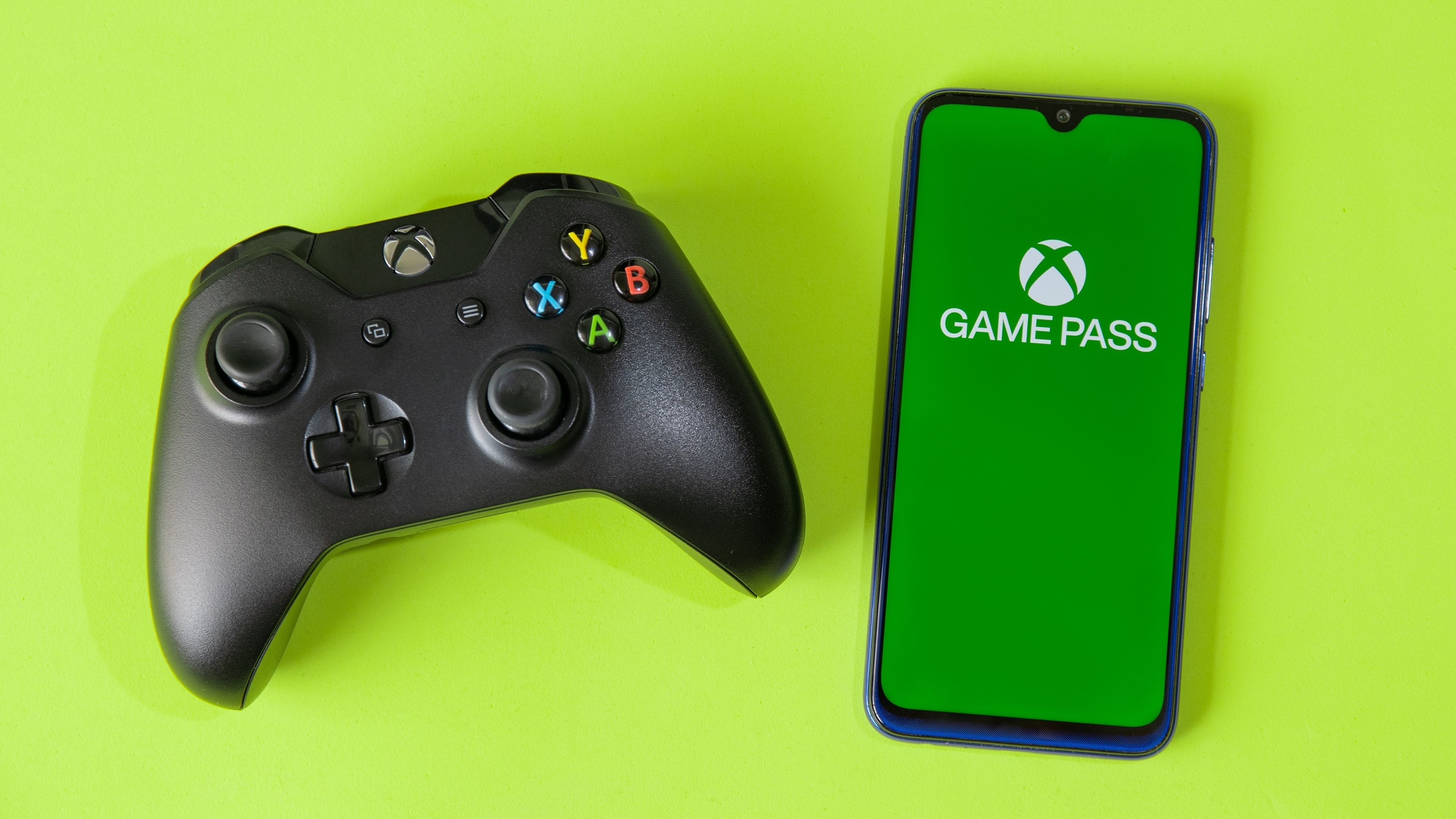Xbox cloud gaming works so well, it could make consoles superfluous
Xbox Cloud Gaming works great on consoles, which raises interesting questions

Here at Tom’s Guide our expert editors are committed to bringing you the best news, reviews and guides to help you stay informed and ahead of the curve!
You are now subscribed
Your newsletter sign-up was successful
Want to add more newsletters?

Daily (Mon-Sun)
Tom's Guide Daily
Sign up to get the latest updates on all of your favorite content! From cutting-edge tech news and the hottest streaming buzz to unbeatable deals on the best products and in-depth reviews, we’ve got you covered.

Weekly on Thursday
Tom's AI Guide
Be AI savvy with your weekly newsletter summing up all the biggest AI news you need to know. Plus, analysis from our AI editor and tips on how to use the latest AI tools!

Weekly on Friday
Tom's iGuide
Unlock the vast world of Apple news straight to your inbox. With coverage on everything from exciting product launches to essential software updates, this is your go-to source for the latest updates on all the best Apple content.

Weekly on Monday
Tom's Streaming Guide
Our weekly newsletter is expertly crafted to immerse you in the world of streaming. Stay updated on the latest releases and our top recommendations across your favorite streaming platforms.
Join the club
Get full access to premium articles, exclusive features and a growing list of member rewards.
Back in August 2020, I tested Xbox Cloud Gaming on Android for the first time, and proclaimed that it was "the future of gaming — almost." Now that Xbox Cloud Gaming is available on consoles, that future feels just a little bit closer. Of all the companies currently attempting to make "play any game, anywhere" a reality — Google, Nvidia, Nintendo and more — Microsoft has come the closest. Having tested Xbox Cloud Gaming on an Xbox Series X, I’ve begun to wonder how much longer dedicated consoles will be the centerpieces of gaming setups, rather than just optional components.
Xbox Cloud Gaming on consoles

In case you haven’t followed the evolution of Xbox Cloud Gaming, there’s some background you need to know. Microsoft offers a subscription service called Xbox Game Pass Ultimate ($15 per month), which lets users download more than 400 games to Xbox consoles and/or PCs. Over the past year, Microsoft has expanded this functionality, also allowing users to stream many of those games to Android devices and non-gaming PCs. A few days ago (November 17), Microsoft announced that Xbox Game Pass Ultimate subscribers could now also stream games directly to Xbox consoles.
At first, this may seem counterintuitive: Why stream a game to a dedicated console? Even under ideal streaming conditions, a downloaded game offers a better experience, with steadier resolutions and frame rates, and no threat of lag or disconnections (at least for offline games). Streaming makes sense for devices like Android phones or productivity laptops, where running a full Xbox game would be impossible. So, what’s the advantage on an Xbox One or Series X/S?
Microsoft offers four major reasons, three of which seem fairly minor, but one of which could be a big deal. Xbox Cloud Gaming on consoles lets you start playing games instantly, which lets you evaluate them before you commit to hours-long downloads. It also lets you save hard drive space for games you play often versus games you dabble in. You can also jump into friends’ multiplayer matches without having to coordinate downloads in advance. These are all useful features, but they won’t make or break anyone’s gaming experience.
What’s more interesting is that Xbox Cloud Gaming could someday obviate the need to buy a new console. Already, you can stream next-gen-exclusive games such as The Medium to Xbox One via Xbox Cloud Gaming. Assume that Xbox Game Pass continues to grow over the next few years, and assume that Microsoft continues to refine cloud gaming’s features, which include resolution, frame rate, stability and so on. It stands to reason that you could eventually just buy a Game Pass subscription (or perhaps à la carte games) and play them on any screen in your house, without having to buy a dedicated gaming device.
Xbox Cloud Gaming with Halo Infinite

Of course, "console gaming, minus the console" would be a wild fantasy if Xbox Cloud Gaming didn’t work properly. That’s why I decided to put the program through its paces with a game that had essentially zero margin for error: the Halo Infinite multiplayer beta. This is one of hundreds of games that support Xbox Cloud Gaming on consoles. Other titles include fast-paced fare such as Dragon Ball FighterZ, Gears 5 and Sea of Thieves. Microsoft may not be promising perfect parity for streaming titles, but the company clearly believes it’s close enough for competitive play.
I loaded up the Halo Infinite multiplayer beta, which took less than a minute from browsing the Xbox Game Pass menu to setting up my first match. I decided to try my luck in a round of capture the flag, teaming up with two other live players against three not-terribly-bright AI bots. (I didn’t want to be the weak link in a match against other players, in case Xbox Cloud Gaming wasn’t up to snuff.)
Get instant access to breaking news, the hottest reviews, great deals and helpful tips.
The game’s resolution maxed out at 1080p, and the game stuttered momentarily once or twice. Aside from that, the match ran perfectly. Every step, jump and shot felt instantaneous, and neither the resolution nor the framerate ever faltered. I admittedly have a fast connection (230 Mbps down, 18 Mbps up), but I was also running on Wi-Fi. Players with Ethernet connections could theoretically get something even smoother.
Likewise, I tried out Haven to see how Xbox Cloud Gaming handled single-player titles. My experience was almost identical. Except for a few moments where the resolution dropped and the backgrounds got a little cloudy, the game ran almost as well as if I had downloaded it. Considering that the service is still in beta, I have to imagine that it will get better from here.
Xbox Cloud Gaming and the future

While Xbox Cloud Gaming on consoles isn’t perfect yet, it’s most of the way there and only a few days after launch. That leads me to wonder: In a world where streaming big-budget games is essentially the same as downloading them, how many people will really need dedicated gaming consoles or PCs? I’m sure some old-school diehards like myself will never give them up. But as consoles and PCs remain extremely expensive and almost impossible to find, it’s hard to deny the appeal of a nearly seamless streaming substitute.
Right now, Xbox Cloud Gaming is an excellent perk for Xbox Game Pass subscribers. But in the future, it could potentially make Xbox consoles themselves feel a bit superfluous. I’m not sure how to feel about that — especially since, at present, the functionality is tied exclusively to a game subscription service.
In the future, we may have to lease all of our games indefinitely and play them on someone else’s server. That sounds like a situation that would cross the line from convenient to borderline dystopian, if you'll allow me to be so hyperbolic. Ownership is already a nebulous concept in the age of digital media, and services like Game Pass seem poised to blur the line even further.
Like all new technology, Xbox Cloud Gaming itself is neither good nor bad. But it does have the potential to facilitate good or bad practices. Let’s hope that it makes console gaming more convenient and affordable, rather than letting big companies dictate when, where and how we can play our favorite games.
Wondering about Xbox Cloud Gaming on the iPhone? We've tested that, too. Also, read about how cloud gaming does on a 5G smartphone!

Marshall Honorof was a senior editor for Tom's Guide, overseeing the site's coverage of gaming hardware and software. He comes from a science writing background, having studied paleomammalogy, biological anthropology, and the history of science and technology. After hours, you can find him practicing taekwondo or doing deep dives on classic sci-fi.
 Club Benefits
Club Benefits










